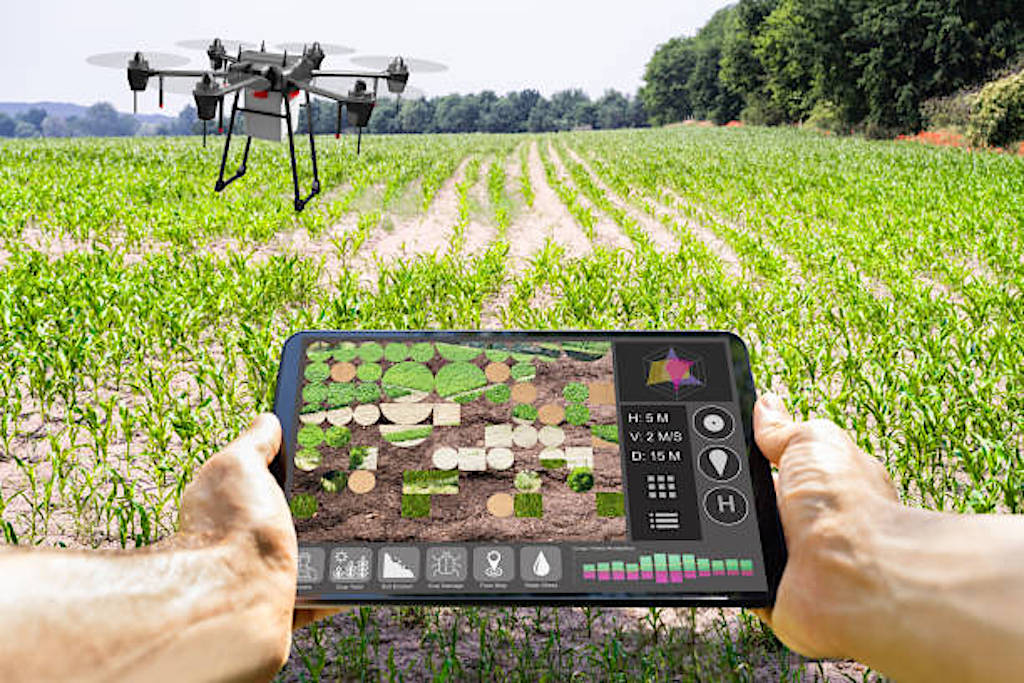Digital agriculture is revolutionising the agricultural landscape in Nigeria, ushering in a new era of efficiency, sustainability, and increased productivity. As a country heavily dependent on agriculture for livelihoods and economic sustenance, the nation is embracing digital technologies to address longstanding challenges and propel the sector forward.
According to a report by the United Nations (2022), one of the key aspects of digital agriculture in Nigeria is precision farming, which involves the use of technology such as Global Positioning System-guided tractors and drones to optimise the use of resources like water, fertilizers, and pesticides. This targeted approach, not only enhances crop yields, but also minimises environmental impact, making agriculture more sustainable in the long run. Furthermore, the report stated that the adoption of smart farming techniques would empower Nigerian farmers with real-time data and insights. Through sensor technologies and Internet of Things (IoT) devices, farmers can monitor soil conditions, weather patterns, and crop health remotely.
This real-time information enables timely decision-making, allowing farmers to respond swiftly to changing conditions and mitigate risks. In addition to precision farming, digital agriculture in Nigeria is leveraging big data and analytics to provide valuable insights into market trends, demand patterns, and pricing. This enables farmers to make informed decisions about what crops to plant, when to sell, and where to sell, ultimately maximising their profits and reducing post-harvest losses. The rise of mobile technology in Nigeria has also played a pivotal role in transforming agriculture. Mobile apps are providing farmers with access to extension services, weather forecasts, and market information, bridging the information gap and empowering them with knowledge that was previously inaccessible.
Blockchain technology is making inroads into the Nigerian agriculture sector, offering transparency and traceability throughout the supply chain. This not only enhances food safety, but also builds trust among consumers, both locally and internationally, boosting the export potential of Nigerian agricultural products. Digital agriculture is fostering financial inclusion for Nigerian farmers through digital payment systems and mobile banking. This allows farmers to access credit, receive payments, and conduct financial transactions without the need for a traditional bank account, providing them with greater financial flexibility and security. The advent of e-commerce platforms dedicated to agriculture has connected farmers directly with consumers, eliminating middlemen and increasing the income of smallholder farmers. This direct-to-consumer approach is creating new opportunities for farmers to showcase their products and expand their market reach.
Artificial Intelligence (AI) is playing a crucial role in crop monitoring and disease detection. AI-powered systems analyse images and data to identify potential issues in crops, enabling farmers to take proactive measures to prevent the spread of diseases and minimise crop losses. Digital agriculture is not only benefitting crop production, but also transforming livestock management in Nigeria. Smart collars equipped with sensors can monitor the health and location of livestock, providing farmers with insights to optimise feeding, breeding, and overall management practices, just as government’s initiatives are now driving the digital transformation of agriculture in Nigeria.
Policies that promote the adoption of digital technologies, coupled with investments in infrastructure and training programmes, are creating an enabling environment for the widespread integration of digital solutions in the agriculture sector. The use of drones in agriculture is gaining momentum in Nigeria, particularly for activities like crop spraying, mapping, and monitoring. Drones offer a cost-effective and efficient alternative to traditional methods, allowing farmers to cover large areas quickly and accurately. Digital agriculture is contributing to sustainable farming practices by promoting organic farming, crop rotation, and conservation tillage. These practices not only enhance soil fertility, but also contribute to mitigating the impact of climate change on agriculture.
The integration of weather forecasting systems with digital agriculture tools enables farmers to anticipate and plan for weather-related challenges. This proactive approach helps farmers to make informed decisions about planting and harvesting times, reducing the vulnerability of agriculture to climate variability. Educational programmes and capacity-building initiatives are essential components of the digital agriculture transformation in Nigeria.
By equipping farmers with necessary skills and knowledge to harness digital technologies, these programmes ensure the sustainable adoption and effective utilisation of digital tools. In conclusion, digital agriculture is reshaping the agricultural landscape in Nigeria, offering unprecedented opportunities for increased productivity, sustainability, and economic growth. As the country continues to embrace digital technologies, the future of Nigerian agriculture looks promising, with the potential to uplift the livelihoods of farmers, enhance food security, and position the nation as a key player in the global agricultural market.


1 Comment
I think Nigerian farmers are finding it hard to adjust to digital solutions because of cost and insecurities